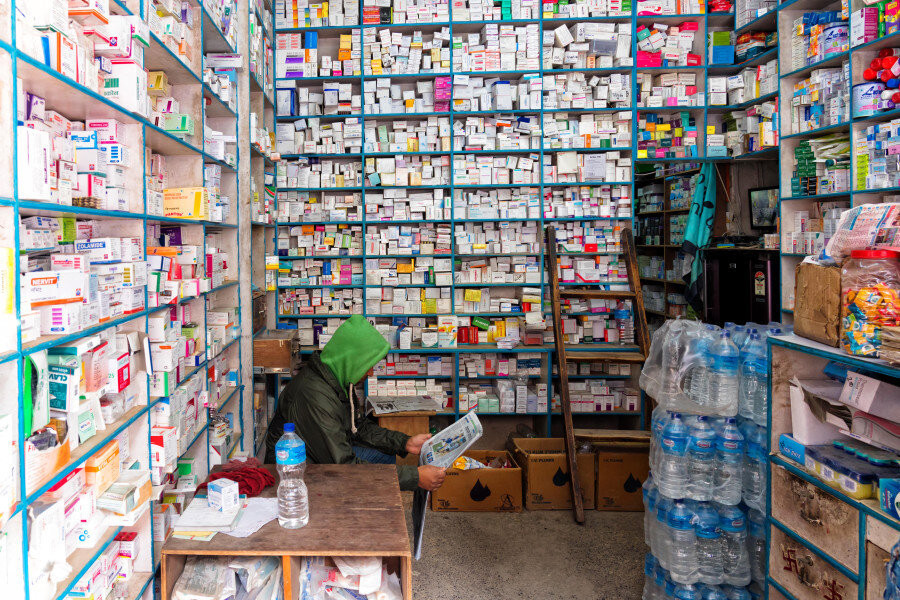Editorial
Medicines that kill
The lives of millions of Nepalis who rely on quack medicines are on the line amid the state’s apathy.
These days, all ailments seem to have easy remedies. Alongside pharmacies and stores selling cure-all ayurvedic products, food supplements, nutraceuticals, and beauty ointments, the online space too is rife with influencers and health gurus peddling them. People are tricked into buying these so-called solutions without even knowing what really ails them, and unaware such things could harm their health. This is evident in the findings of the recent drug inspection by the Department of Drug Administration (DDA). Drug inspectors discovered unregistered dietary supplements and nutraceuticals in various forms, including tablets, capsules, and liquids, as well as beauty creams containing pharmaceutical ingredients sold in wholesale and retail pharmacies.
The rampant trade of harmful dietary supplements, cosmetics, and ayurvedic medicines has led to higher incidents of heavy metal poisoning. A 2020 study by the Department of Ayurveda and Alternative Medicine under the Ministry of Health and Population in Manang, Dhading and Parsa found toxic metals such as arsenic, cadmium, lead and mercury in three medicinal plants used in ayurvedic treatments for common ailments. Heavy metal poisoning is especially common in people using dietary supplements for weight loss and those buying ayurvedic medicine online to manage blood sugar and blood pressure. Such poisoning can cause anaemia, skin disorders, lead to damage of kidneys and brain as well as lung cancer.
Although the DDA has banned the sale of dietary supplements in pharmacies and warned traders that selling such unregistered products would result in confiscation and legal actions. But their sales are only growing. It is also disturbing that some doctors are pushing poor patients to buy vitamin supplements they don’t need; there are suspicions that these doctors get kickbacks from companies for prescribing such expensive products. As a result, children in rural areas face serious consequences. When a child gets sick, the guardians, already overwhelmed by expensive hospital consultations, are made to buy costly bottled vitamins. Instead of having to pay for quack cures, people should be guided to eating healthy as, according to experts, it is best to get vitamins, minerals and other nutrients from nutritious food rather than through supplements.
This is a worldwide problem. With the growing influence of social media and influencer marketing, it is easy to be swayed into buying such harmful supplements or cosmetics. For example, according to The New York Times, the dietary supplement industry in the US has surged over the past 30 years, expanding from approximately 4,000 products in 1994 to over 95,000 in 2023. According to a 2018 article in The Guardian, thousands of people buy illegal slimming pills every year on the internet, enticed by miracle claims of rapid weight loss. In most countries, specialised agencies oversee the safety, efficacy, and security of human and veterinary drugs, biological products, and medical devices. Public health experts in Nepal have long been calling for such an independent regulatory body. Nepal also has no agency to monitor the quality of cosmetic products sold.
Although the Department of Food Technology and Quality Control oversees dietary supplements in the market, they are regulated as food items, not drugs. It performs quality tests on dietary supplements without ensuring their effectiveness. Further, the products’ contents may differ from what’s stated on the packaging. It is thus vital to strengthen our inspection authorities and tighten regulatory measures. As essential is mass awareness to prevent blind reliance on unreliable products. The lives of millions of people cannot be put in jeopardy through such utter carelessness on the part of state authorities.




 17.2°C Kathmandu
17.2°C Kathmandu














